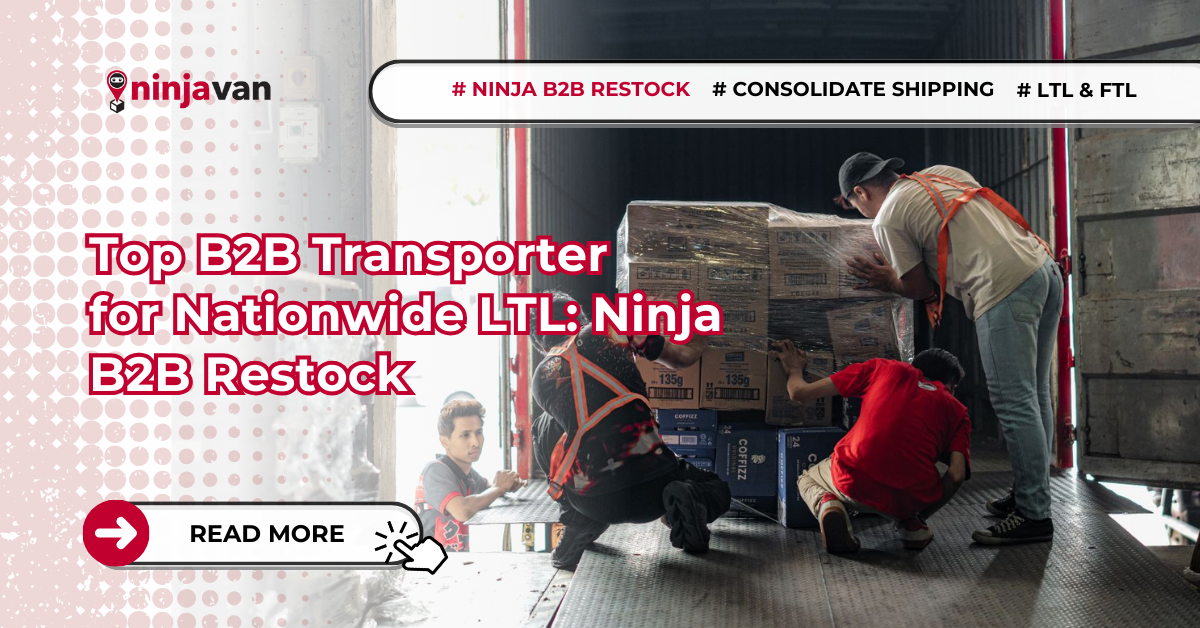New business trends encompass the dominant patterns and transformations in the business environment that have a significant impact on industries, markets, and consumer behaviour. These trends are influenced by various aspects like customer preferences, market fluctuations, industry innovations, technological advancements and changes with regulation. Business owners can quickly adapt their strategies when they stay updated on trending updates. Keeping your ear to the ground can help you make informed decisions since you will be privy to valuable information and opportunities to expand and grow.
In the ever-changing economic climate of Malaysia, it’s prudent to remain well-informed so you can anticipate future business trends. This practice can help empower you to maintain a competitive edge in an evolving business landscape.
E-commerce Boom

This trend is expected to grow at an exponential rate due to research predictions that e-commerce users will continuously increase by a total of 2.9 million users from 2023 to 2027. Since the Covid-19 pandemic, customers have grown comfortable with shopping online and trends have shown that this may continue for the time being.
Social e-commerce is the current way to go for online entrepreneurs as consumers prefer to learn about a product on social media. Sharing tutorials and reviews on social media platforms like TikTok and Instagram Live brings in the reach and clicks for an online business right now.
This changes the way customers make their decision to purchase products. Influencers, content creators, celebrity endorsements on social media are shown to gain more traction than traditional means of marketing and advertising.
Embracing Sustainable Practices

With growing environmental consciousness, Malaysian consumers are notably seeking out companies that adopt sustainable practices. As an e-commerce seller, weaving sustainability into your business model can give you a competitive edge, boost customer loyalty, and positively affect your bottom line.
Implementing sustainable measures can vary widely, from using eco-friendly packaging and renewable energy to adopting ethical sourcing practices and supporting social causes. These initiatives not only reflect your company’s commitment to the environment but also resonate with the values of today’s conscientious consumers, prompting them to patronise your brand.
Why does this matter?

Consumer Appeal: A strong green ethos can make your brand more attractive to the increasingly eco-aware market. Aligning your practices with customer values can set you apart from the competition.
Positive Impact on Revenue: Studies have shown that consumers are often willing to pay more for products from companies committed to positive social and environmental impact.
Strengthening Brand Image: Sustainable practices can enhance your reputation and fortify your brand’s image.
One clear example of Malaysia’s shift towards sustainability is the growing prevalence of electric vehicles. The government’s pledge to install 10,000 public charging stations for electric vehicles signals a strong commitment to reducing the nation’s carbon footprint.
As an e-commerce seller, adapting to this trend and implementing sustainable practices can help you stay ahead of the curve, tailor your offerings to the evolving market conditions, and ultimately, nourish your business’s bottom line.
Embracing the Evolution: From Digital Transformation to AI

As an e-commerce seller, you’re already familiar with the importance of having an online presence and utilising basic digital tools. However, to stay competitive and grow your business in this digital era, understanding the broader digital landscape is essential. Let’s break down the phases of digital evolution:
Digital Transformation / Digitalization: This is the foundational phase in which businesses take their offline operations online or establish an online presence. While e-commerce sellers are already ahead in this field, evolving consumer preferences and advances in digital infrastructure make being adaptable key to maintaining success. Physical stores provide trustworthiness and enhance brand image, yet striking the right balance between offline and online presence is crucial.
Digital Enhancement: This phase focuses on streamlining business processes and optimising operations through an array of digital tools and software. Explore beyond standard marketplace platform tools, and consider adopting solutions such as customer relationship management (CRM) software, data analytics, and cloud computing. These enhancements can further improve overall operational efficiency, elevating your e-commerce business.
Artificial Intelligence (AI): The AI phase, representing the newest wave of digital enhancement, offers a plethora of untapped business improvement potential. Technologies like ChatGPT are at the forefront of AI advancements. As AI solutions become more accessible and refined, e-commerce sellers who stay informed and experiment with these emerging technologies can position themselves ahead of competitors.
The Evolution of the Gig Economy

The gig economy, characterised by flexible, short-term, and freelance work arrangements, has undergone significant transitions throughout history. Its pitfalls and potentials hold valuable insights for today’s e-commerce entrepreneurs.
Historically, the term ‘gig’ was coined by jazz musicians referencing their sporadic performance jobs. As years passed, it morphed to embody Craigslist-type short-term jobs like babysitting and tutoring. A major shift occurred with digital marketplaces like Upwork, accommodating professional gigs such as copywriting, designing, and marketing.
Most recently, the ride-hailing and courier services sector has embraced the gig model, a trend amplified by the pandemic. Companies like Grab, Shopee Food, Lalamove, and Foodpanda have not only validated the gig economy’s robustness but revolutionised it with technology.
So, what does this trend mean for e-commerce sellers?
Rather than advocating for e-commerce sellers to become gig workers, understanding the gig economy’s current transformations can provide them with fresh strategies to adapt their business models. This adaptation can be in the form of leveraging gig workers for processes such as deliveries and customer service, or incorporating gig platform features into your own e-commerce setups.
Remember, businesses that understand and effectively tap into the evolving trends hold the potential to stay economically resilient while achieving expansive growth.
Embrace The Change

As an entrepreneur in Malaysia, capitalising on small business trends in 2023 can help yield significant results if you evolve at the right time. Embracing the wave of change as being stagnant may prove to be detrimental to the growth of your business.
Small business trends provide unique opportunities for business owners to innovate and grow. It’s also important to be aware that these trends will reshape the business landscape so you need to be prepared for market disruption and change of customer behaviour. Adapting and evolving is the best way to ride this wave of change for the improvement of your business.
We’re giving a special limited time promotion to all small business owners! Download the Ninja Biz app today and receive up to RM20 off when you ship 10 parcels with us. Valid within 7 days after signing up.







